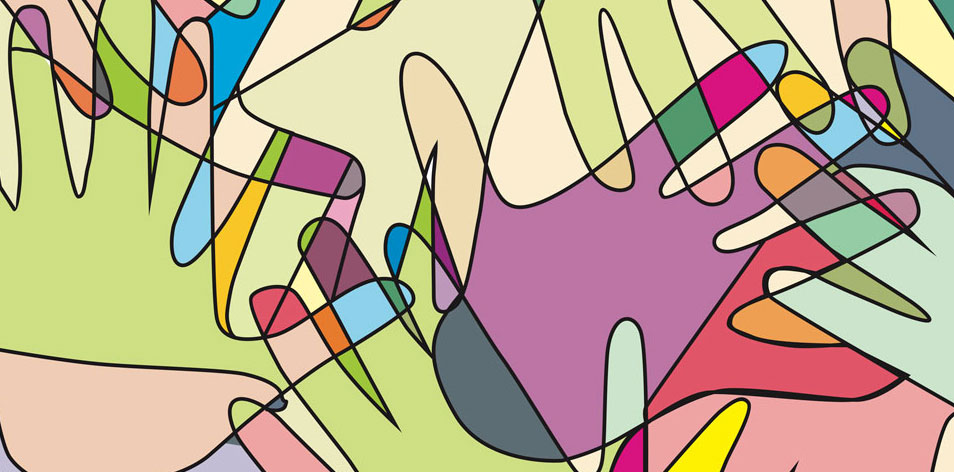Community Blog Nurturing Youth Leadership Development in Hard Times: The Hebrew College Dignity Project

In this moment of increased polarization and resurgent intolerance, we need to help young people develop the ability and sensibility to find common ground when possible, and to engage in dignified discourse and debate when necessary. This is particularly important for our target audience, as these teens move closer to adulthood, preparing to leave home for college, university, and work life. — Rabbi Or Rose, Miller Center Director, Dignity Project Proposal, December 2019
Hebrew College’s Miller Center for Interreligious Learning & Leadership began planning for the new Dignity Project a few months before the COVID-19 outbreak; we felt a growing need to help teen leaders in our city navigate the diversity of American life during a time of widespread political and cultural polarization.
But the pain and isolation of the pandemic and the recent social uprising have made the mission of this new project— designed to train outstanding high school students from Greater Boston to serve as interreligious and cross-cultural bridge-builders— even more urgent and relevant.
Members of the inaugural fellowship cohort of 16 fellows come from Baha’i, Buddhist, Muslim, Jewish, and Christian traditions, as well as from secular communities. Our goal is for these fellows to engage the diversity of our city—and broader society—with thoughtfulness, skill, and care. To build this capacity, Dignity Project fellows are learning both the theory and practice of interreligious and cross-cultural leadership, including strategies and tactics to cultivate resilience and joy in the midst of an unprecedented wave of illness, loss, anger, and uncertainty. They are also learning how to have “courageous conversations” about potentially divisive issues like the upcoming presidential election.
In order to have such bold and vulnerable discussions, our youth leaders and mentors have together crafted a set of community commitments that outline our dialogical principles. These include a willingness to listen deeply, a willingness to disagree compassionately, and a willingness to persevere in the face of disappointment. These commitments stretch us in ways that may not feel “natural” or that are often lacking in the public square, but developing these habits of heart, mind, and speech are essential to creating a sacred space (all virtual to date) for dignified dialogue and inter-group cooperation— both of which are desperately needed at this time.
Through intentional discussion and creative exploration, the Dignity fellows are gaining a fuller understanding and appreciation of their own spiritual and ethical values and priorities, while also learning about the beliefs, practices, and commitments of their peers and mentors. In the give-and-take of our monthly workshops are informal discussions they are learning to articulate their ideas and opinions with conviction and integrity, while also exercising empathy and humility.
As fellows collaborate and explore how to use their unique voices for change, the program looks to community leaders reaching across lines of division and learns from their example. One such intercultural leader is Sarah Cargill, a Black performance artist, educator, and youth advocate who sums up what is central to this powerful program: “Strength, therefore, cannot be measured by the metrics of individual power, but by how one responds when confronting the best and most challenging parts of themselves as it is reflected in the other.”
How we choose to be in relationship with others—especially relationships across lines of difference—reflects our own strength and power. When we see ourselves reflected in another, how do we respond? When we find ourselves in opposition to our peers, how do we respond? Can we find common ground? Can we engage in dignified debate? These are questions our teens are exploring through the Dignity Project and why it is such important work in our beautiful but broken world today.
 Kimberley Bress is the Assistant Director of The Dignity Project, an initiative of the Miller Center for Interreligious Leadership & Learning at Hebrew College. She is a third year M.Div. Student at the Boston University School of Theology where she is focusing on chaplaincy as well as the intersection of healing and justice work. Kim has a background in Zen Buddhism, including several years of full-time monastic training, and has been a leader in grassroots organizing efforts that incorporate meditation as a tool for social change.
Kimberley Bress is the Assistant Director of The Dignity Project, an initiative of the Miller Center for Interreligious Leadership & Learning at Hebrew College. She is a third year M.Div. Student at the Boston University School of Theology where she is focusing on chaplaincy as well as the intersection of healing and justice work. Kim has a background in Zen Buddhism, including several years of full-time monastic training, and has been a leader in grassroots organizing efforts that incorporate meditation as a tool for social change.

